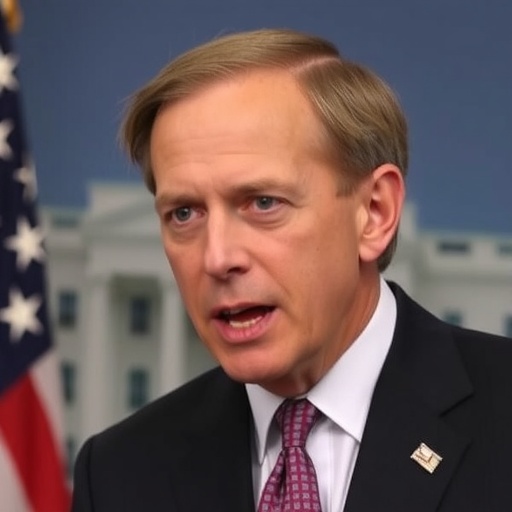In a sobering address to economic policymakers, US Treasury Secretary Scott Bessent has issued a stark warning that the housing market may already be slipping into a Recession, battered by persistently high interest rates. Speaking at a high-profile forum in Washington D.C., Bessent emphasized that without swift intervention from the Federal Reserve, the downturn could ripple through the broader economy, stifling consumer spending and job growth.
Bessent’s comments come at a critical juncture, as mortgage rates hover around 7.5%, the highest in over two decades, deterring potential homebuyers and freezing the housing sector. He urged the Federal Reserve to accelerate interest rate cuts, arguing that current policies are exacerbating an already fragile situation. ‘The housing market is the canary in the coal mine for the US economy,’ Bessent stated, highlighting data showing a 20% drop in home sales year-over-year.
Bessent Highlights Housing Market’s Sharp Decline Amid Rate Squeeze
The housing market, once a powerhouse of economic activity, is showing unmistakable signs of recessionary pressures, according to Secretary Scott Bessent. Recent figures from the National Association of Realtors indicate that existing home sales plummeted to an annualized rate of 4.1 million units in August, the lowest since 1995 outside of the pandemic era. This decline is directly tied to elevated interest rates, which have made borrowing costs prohibitive for millions of Americans.
Bessent pointed to the 30-year fixed mortgage rate, which has lingered above 7% for months, as a primary culprit. ‘When interest rates climb this high, the dream of homeownership turns into a nightmare for young families and first-time buyers,’ he remarked during his speech. The secretary noted that inventory levels, while slightly improving, remain critically low at just 3.3 months’ supply, far below the balanced market threshold of 5-6 months. This scarcity, combined with affordability challenges, has led to a 15% year-over-year increase in median home prices to $412,000, pricing out a significant portion of the workforce.
Further underscoring the Recession risks, Bessent referenced labor market data specific to housing-related industries. Construction employment has fallen by 2.5% since peaking last year, with over 100,000 jobs lost in residential building alone. ‘These aren’t just numbers; they’re livelihoods hanging in the balance,’ he added, calling attention to small builders and subcontractors who are folding under the weight of stalled projects and rising material costs.
Federal Reserve’s Rate Policy Under Fire for Fueling Housing Woes
At the heart of Secretary Scott Bessent’s critique is the Federal Reserve’s monetary policy, which he argues has been too slow to respond to the housing market’s distress signals. The Fed’s decision to maintain interest rates at 5.25-5.50% since July 2023 has been praised for curbing inflation but lambasted for its collateral damage to sectors like housing. Bessent advocated for more aggressive rate cuts, potentially starting as early as the next Federal Open Market Committee meeting, to inject liquidity and lower borrowing costs.
Economists echo this sentiment, with a survey by the Wall Street Journal revealing that 65% of respondents believe the Fed should cut rates by at least 50 basis points before year-end to avert a deeper Recession in housing. Current projections from the Mortgage Bankers Association forecast that even with modest cuts, mortgage rates won’t dip below 6.5% until mid-2025, prolonging the pain. Bessent warned that prolonged high interest rates could lead to a vicious cycle: reduced home sales mean fewer transactions, lower property tax revenues for local governments, and eventual strain on municipal services.
In his address, Bessent didn’t shy away from direct appeals to Fed Chair Jerome Powell. ‘The Federal Reserve has the tools to act decisively; delaying could turn a sector-specific recession into a nationwide one,’ he said. This comes amid internal Fed debates, where some governors favor a cautious approach to ensure inflation remains tamed at the 2% target, while others push for bolder moves to support growth.
Ripple Effects: How Housing Recession Threatens Broader US Economy
Beyond the immediate confines of the housing market, Secretary Scott Bessent painted a picture of cascading economic risks from the ongoing interest rate-induced slowdown. The sector accounts for roughly 15-18% of US GDP when including related industries like real estate services, appliances, and furniture. A recession here could shave 0.5-1% off overall growth, according to estimates from the Brookings Institution, potentially tipping the economy into negative territory by early 2025.
Consumer confidence is already waning, with the Conference Board’s index dropping to 103.2 in September, its lowest in six months, largely due to housing affordability concerns. Home equity lines of credit, a key source of household wealth extraction, have dried up as values stagnate in many markets. In high-cost areas like California and New York, foreclosure rates have ticked up 10% in the past quarter, signaling early distress among overleveraged owners.
Bessent highlighted regional disparities, noting that Sun Belt states like Florida and Texas, which boomed during low-rate periods, are now facing the sharpest corrections. ‘Interest rates don’t discriminate; they’re hammering the heartland as much as the coasts,’ he observed. Supply chain disruptions in lumber and steel, exacerbated by the slowdown, are adding to inflationary pressures elsewhere, creating a paradoxical bind for the Federal Reserve.
Business leaders are feeling the pinch too. Major homebuilders like D.R. Horton reported a 12% revenue dip in their latest quarter, attributing it squarely to high interest rates. Retailers tied to housing, such as Home Depot, have revised downward their full-year forecasts, warning of subdued demand for renovations amid buyer hesitation.
Expert Voices and Pathways to Housing Market Recovery
As Secretary Scott Bessent’s warning reverberates through financial circles, experts are weighing in on potential remedies for the housing market’s recessionary slide. Dr. Elena Ramirez, chief economist at the Urban Institute, agrees that accelerated Federal Reserve rate cuts are essential but stresses complementary fiscal measures. ‘Targeted tax credits for first-time buyers and incentives for affordable housing development could bridge the gap while rates adjust,’ she told reporters post-Bessent’s speech.
Market forecasts vary, but optimism hinges on Fed action. Goldman Sachs predicts a 75-basis-point cut by December if inflation data cooperates, which could boost housing starts by 10-15% in the following year. However, persistent supply constraints—rooted in zoning laws and labor shortages—mean recovery won’t be swift. Bessent himself called for bipartisan reforms to streamline permitting, estimating that such changes could add 1 million housing units annually.
Looking ahead, the implications for everyday Americans are profound. With interest rates expected to remain elevated into 2024, renters may face prolonged uncertainty, as new household formation stalls. Bessent concluded his remarks on a cautiously hopeful note: ‘By acting now, we can steer the housing market—and the economy—away from the recession cliff.’ The coming weeks will be pivotal, as upcoming jobs reports and inflation metrics could force the Federal Reserve’s hand, determining whether Bessent’s urgent plea translates into policy shifts that rescue the beleaguered sector.
In the interim, homeowners and investors are advised to monitor Fed announcements closely. Strategies like refinancing preparation or diversifying into rate-hedged investments are gaining traction among advisors. As the debate intensifies, the housing market’s fate remains a litmus test for the resilience of the US economy under current interest rate pressures.








